Japan is an island nation in East Asia, located in the Pacific Ocean, east of China and Korea.
It consists of four main islands—Honshu, Hokkaido, Kyushu, and Shikoku—plus thousands of smaller ones.
Known for its mix of ancient traditions and cutting-edge technology, Japan is a top destination for travelers worldwide.
Historically, Japan was ruled by emperors and samurai for centuries before modernizing rapidly in the late 19th century.
After World War II, it was rebuilt into an economic powerhouse while preserving its deep cultural heritage.
Today, it’s a global leader in technology, fashion, and pop culture.
In 2024, Japan hit a new tourism record, welcoming nearly 37 million visitors, surpassing pre-pandemic numbers.
People come for Tokyo’s neon-lit streets, Kyoto’s ancient temples, Mount Fuji’s stunning views, and Osaka’s food scene.
The country also offers world-class skiing in Hokkaido, tropical beaches in Okinawa, and historic samurai towns in Kanazawa and Kagoshima.
Beyond its cities, Japan is famous for its onsen (hot springs), cherry blossoms, sumo wrestling, anime culture, and high-speed bullet trains.
Whether you’re into history, outdoor adventures, or futuristic cities, Japan has something for everyone.
With its incredible safety, efficient transportation, and endless sights, it’s no surprise that more people are visiting than ever before.
Warnings & Dangers in Japan

OVERALL RISK: LOW
Japan is one of the safest countries in the world, with low crime rates and a strong sense of public order. Violent crime against tourists is extremely rare, but petty theft and nightlife scams can happen. The biggest risks are natural disasters—earthquakes, typhoons, and tsunamis—so it’s good to stay prepared.

TRANSPORT & TAXIS RISK: LOW
Public transportation is efficient and safe, but taxis can be expensive since they charge by distance and time. Scams are rare, though unlicensed “black taxis” in nightlife areas may overcharge. Trains can get extremely crowded during rush hour, so be mindful of pickpockets and avoid bringing large luggage on packed trains.

PICKPOCKETS RISK: LOW
Japan has very low rates of pickpocketing, but it can still happen in crowded tourist areas, on trains, and in markets. Be cautious in places like Shibuya, Osaka’s Dotonbori, and Kyoto’s Fushimi Inari Shrine. Always keep bags zipped (and locked, if you can), and don’t leave phones or wallets unattended in restaurants or on train seats.

NATURAL DISASTERS RISK: MEDIUM
Japan is prone to earthquakes, tsunamis, and typhoons, so it’s important to stay informed. Earthquake drills are common, and most buildings are well-engineered for safety. Treat this as a medium risk since some of the safety steps might not be something you're familiar with.

MUGGING RISK: LOW
Mugging is extremely rare in Japan, even at night. However, some cases have been reported in nightlife areas like Roppongi and Kabuki-cho, often linked to drink spiking or scams. Stick to well-lit areas, avoid shady clubs, and if someone tries to pressure you for money, leave and seek help.

TERRORISM RISK: LOW
Japan has a very low terrorism risk, with no recent attacks. However, as a global destination, there’s always a general risk in crowded places like train stations, shrines, and festivals. There's also the risk of North Korea launching missiles toward Japan during testing. Use the website "www.kokuminhogo.go.jp" to check safety steps for missile testing risks.

SCAMS RISK: LOW
Scams in Japan are rare but do exist, especially in nightlife districts like Roppongi and Shinjuku. Common ones include drink spiking, excessive bar bills, and overpriced taxi rides from unlicensed drivers. Some street vendors may overcharge tourists. Always agree on prices in advance and avoid aggressive touts.

WOMEN TRAVELERS RISK: LOW
Japan is safe for female travelers, but some women experience groping on crowded trains, especially in Tokyo and Osaka. Many trains have women-only cars during rush hours. Late-night bars can have pushy staff or customers, so staying aware and setting boundaries is key. Overall, harassment levels are low.

TAP WATER RISK: LOW
Japan’s tap water is completely safe to drink and among the cleanest in the world. You can refill bottles at public fountains and even drink from bathroom sinks. Some older buildings may have outdated pipes, so if the water tastes odd, grab bottled water.
Safest Places to Visit in Japan
The Japan National Tourism Organization runs the official tourism website, which is “japan.travel.”
Read the News and Plan Your Trip section for updates and practical information.
To help with your itinerary, we’ll break down the top things to do in each region, as designated by the tourism agency.
Chugoku – History, Nature & Coastal Views
Chugoku is home to Hiroshima, a city with deep historical significance.
The Peace Memorial Park and Museum are must-visits.
Nearby, Miyajima Island is famous for its floating Torii gate and friendly deer.
The region also has stunning coastal views, like the Sand Dunes of Tottori and the hidden Tsunoshima Bridge in Yamaguchi.
If you like off-the-beaten-path travel, Okayama and Kurashiki offer charming old towns and castles without heavy crowds.
Hokkaido – Outdoor Adventures & Food
Japan’s northernmost island is all about nature and wide-open spaces.
In winter, it’s a paradise for skiers, with resorts like Niseko and the famous Sapporo Snow Festival.
Summer brings flower fields in Furano and hiking in Daisetsuzan National Park.
Seafood lovers should head to Hakodate’s Morning Market or Otaru’s canal-side restaurants for the best sushi and crab.
Hokkaido is also known for hot springs, with Noboribetsu being a top spot for a relaxing soak.
Hokuriku Shinetsu – Mountains, Castles & Snow Monkeys
This region is a mix of coastal beauty and mountain escapes.
Kanazawa is a cultural gem, with well-preserved samurai districts and Kenrokuen Garden, one of Japan’s most beautiful.
Nagano is home to the famous Jigokudani Snow Monkey Park, where monkeys bathe in hot springs.
If you love castles, Matsumoto Castle is one of Japan’s best-preserved originals.
In winter, Hakuba offers excellent skiing, and in autumn, the Tateyama Kurobe Alpine Route is breathtaking.
Kansai – Ancient Temples & Bustling Cities
Kansai is where you’ll find Kyoto, Osaka, and Nara—a mix of history and urban energy.
Kyoto is packed with temples like Fushimi Inari Shrine and Kinkaku-ji (Golden Pavilion).
Osaka is the go-to for street food and nightlife, with must-tries like takoyaki and okonomiyaki.
Nara has friendly deer and the giant Buddha at Todai-ji.
If you want coastal views, head to Amanohashidate, a scenic sandbar often called “Japan’s Bridge to Heaven.”
Kanto – Tokyo & Beyond
Home to Tokyo, Japan’s most vibrant city, Kanto is all about big city attractions and easy day trips.
In Tokyo, explore Shibuya’s scramble crossing, Akihabara’s tech and anime stores, and Asakusa’s Senso-ji Temple.
Nearby, Hakone and Nikko offer mountain scenery, hot springs, and historic sites.
Kamakura, known as the “Kyoto of Eastern Japan,” has the famous Great Buddha statue.
For beach lovers, Chiba and the Izu Peninsula have underrated coastlines and surf spots.
Kyushu – Volcanoes, Onsen & Samurai History
Kyushu is full of natural hot springs, active volcanoes, and rich samurai history.
Beppu and Yufuin are two of Japan’s best onsen towns, while Kagoshima offers incredible views of Sakurajima, an active volcano.
Nagasaki has a fascinating mix of European and Japanese history, plus the Atomic Bomb Museum.
For outdoor lovers, Kumamoto’s Mount Aso is one of the world’s largest volcanic calderas, and Takachiho Gorge is a magical spot with boat rides through towering cliffs.
Okinawa – Beaches, Diving & Unique Culture
Japan’s tropical escape, Okinawa, feels like a different world.
The beaches are some of the best in Asia, with Zamami, Ishigaki, and Miyako Islands offering clear waters and top-notch diving.
The food is unique, too—try Okinawa soba, goya champuru (bitter melon stir-fry), and the famous Blue Seal ice cream.
History buffs should visit Shuri Castle, once the heart of the Ryukyu Kingdom.
For pure relaxation, Kerama Islands are an untouched paradise just off the coast.
Shikoku – Pilgrimages & Outdoor Escapes
Shikoku is Japan’s most peaceful and nature-filled region.
It’s famous for the 88 Temple Pilgrimage, a spiritual hiking route that takes weeks to complete.
For a taste of adventure, Iya Valley has vine bridges and dramatic gorges.
The Naruto Whirlpools near Tokushima are a cool natural phenomenon, and Ritsurin Garden in Takamatsu is one of Japan’s best traditional gardens.
If you love udon, Kagawa Prefecture is famous for Sanuki udon, a must-try dish.
Tohoku – Mountains, Castles & Hidden Hot Springs
Tohoku is Japan’s wild and underrated region, full of rugged mountains, samurai towns, and untouched nature.
Aomori and Akita are known for their colorful Nebuta and Kanto festivals.
Hiraizumi, a UNESCO-listed town, has stunning golden temples.
If you visit in winter, Zao Onsen has famous “snow monsters” (trees covered in ice) and great skiing.
For something unique, check out Ginzan Onsen, a historic hot spring town that looks straight out of a Ghibli movie.
Tokai – Fuji Views, Hot Springs & Coastal Towns
Tokai is all about Mount Fuji, coastal views, and hot springs.
The best Fuji views can be found around Hakone, the Fuji Five Lakes, and Gotemba.
Nagoya is a major city with great food (try miso katsu!) and the impressive Nagoya Castle.
Along the coast, Ise Shrine is Japan’s most sacred Shinto site, while Atami and Ito are top spots for oceanfront hot springs.
If you want an island escape, Shizuoka’s Izu Peninsula has beautiful beaches and coastal hikes.
Places to Avoid in Japan
There aren’t really areas to avoid in Japan other than the standard “dark alleys at night” types of places.
However, Japan’s nightlife districts can come with specific risks.
That includes places like Roppongi, Kabuki-cho, Shibuya, and Ikebukuro.
The main issues?
Drink spiking, scams, and overpriced bar tabs—sometimes enforced with threats or even physical violence.
Tourists have reported waking up in strange places after being drugged, getting coerced into withdrawing cash at ATMs or being forced to pay absurd bills at clubs.
Criminal groups also operate in these areas, and fights occasionally break out.
The safest move?
Stick to reputable bars, never leave drinks unattended, and be wary of overly friendly strangers or aggressive touts trying to lure you into clubs.
If a situation feels sketchy, trust your instincts and leave.
Japan is incredibly safe overall, but nightlife scams and suspicious activities are some of the few real risks you’ll encounter.
Tourists should avoid the Fukushima Daiichi Nuclear Power Plant and its immediate surroundings unless they’re on an official, guided tour with proper safety measures.
If you’re exploring Fukushima, stick to safe areas like Aizu-Wakamatsu, Ouchi-juku, and the beautiful Bandai region, which pose no radiation risk.
Safety Tips for Traveling to Japan
- Japan’s police force is highly professional and approachable. There is no dedicated tourist police, but officers in major cities often speak some English. If you need help, visit a kナ甲an (police box), common in urban areas. In emergencies, dial 110 for police or 119 for fire/ambulance services.
- Download the Japan National Tourism Organization (JNTO) safety app to get emergency alerts. Don’t wait until you’re there to learn what to do in the event of a typhoon, tsunami, or incoming missile.
- Drink spiking, especially in Roppongi and Kabuki-cho, is on the rise. Victims often wake up with missing money or credit card charges. To stay safe, never leave drinks unattended, avoid pushy club promoters, and be cautious of overly friendly strangers offering drinks. If you feel sick or unusual, seek help immediately.
- Japan’s adult entertainment industry is expanding, especially in nightlife areas. Shops may have curtained entrances, neon signs, or vague names like “DVD” or “Massage” in entertainment districts. If you’re unsure, avoid entering random establishments. Some venues scam tourists with high fees, so research before visiting any nightlife spots.
- You can drive in Japan, but you’ll need an International Driving Permit (IDP) from your home country. Japan drives on the left, and road signs are mostly in Japanese. Tolls are expensive, parking is scarce, and traffic in cities like Tokyo can be painfully slow.
- Japan has strict drug laws, especially on stimulants, painkillers, and marijuana. Even common ADHD meds (like Adderall) and some strong painkillers (like codeine and oxycodone) are banned without special permission. Marijuana, even for medical use, is completely illegal.
- In Japan, you must carry your passport or residence card (Zairyu Card) at all times. If police stop you and you don’t have it, you could be taken in for questioning. Tourists, workers, and students all need proper ID to confirm their status. Keeping a copy isn’t enough—you need the original.
- Chopsticks have strict rules in Japan. Never stick them upright in rice—it resembles funeral rituals. Don’t pass food from chopstick to chopstick, as this mimics the handling of bones at funerals. Avoid pointing with chopsticks, licking them, or using them to move dishes. Instead, use chopstick rests when pausing. Also, don’t rub them together when you first get them in your hands.
- Geishas, especially in Kyoto’s Gion district, are working professionals, not tourist attractions. Many geishas have been harassed by tourists, leading some areas to ban photography. If you see one, admire it from a distance, and never chase, block, or touch it. If you want a photo, book a performance instead.
- In places like Nara Park and Miyajima, deer roam freely and are accustomed to humans. However, they can become aggressive if they think you have food or if you taunt them with food. Only feed them official deer crackers (shika senbei), not human snacks. Watch for headbutting, biting, or nudging, especially if they get impatient about food. We’re not kidding about this one; deer injured 35 people in September 2024.
So... How Safe Is Japan Really?
Japan is a very safe country, but some strict laws can lead to risks you might not be willing to take.
The United States, Canada, Australia, and the United Kingdom all give Japan the lowest risk level (one out of a four-level system).
The Level 1 advisory simply means to use standard precautions.
However, it’s always worth reading the advisories before you plan a trip.
Canada’s information is especially robust.
The greatest risk for tension would be near the Korean Peninsula, but that’s not something Japan can control.
However, in a worst-case scenario, it would take just 10 minutes for a missile to hit Japan.
As far as the most pressing risks for tourists, we’ve covered those in our Top 10 Safety Tips, but some of them are worth tracking to see if they escalate (like drink tampering).
It’s also worth noting that some Japanese residents are frustrated with over-tourism.
Please be respectful when you visit.
Don’t block roads to take a photo.
Respect the landscapes.
Throw away your trash—things like that will go a long way toward enjoying your time there and getting kind responses from locals.
How Does Japan Compare?
| Country | Safety Index |
|---|---|
| Japan | 83 |
| Morocco | 54 |
| Singapore | 90 |
| Sweden | 83 |
| Oman | 76 |
| Switzerland | 89 |
| South Korea | 82 |
| Albania | 75 |
| Canada | 88 |
Useful Information

Visas
Many travelers can enter Japan visa-free for up to 90 days, including visitors from the U.S., Canada, the UK, and the EU. If you plan to work or stay longer, you’ll need a visa. Your passport must be valid during your stay.

Currency
Japan uses the Japanese yen (JPY, ¥). You'll want to carry cash with you since credit cards aren't widely accepted or the preferred form of payment. You'll find plenty of ATMs and currency exchange options from the airport to the cities to post offices. Check your credit or debit card international transaction fees because those can add up quickly.

Weather
Japan has four distinct seasons, from snowy winters in Hokkaido to hot, humid summers in Tokyo and Osaka. Spring (March-May) is famous for cherry blossoms, while autumn (September-November) brings beautiful foliage. Summer (June-August) can be very humid, and typhoon season runs from July to October. Winters vary by region.

Airports
Japan has multiple international airports, with Narita (NRT) and Haneda (HND) in Tokyo and Kansai (KIX) in Osaka being the busiest. Haneda is closer to Tokyo, while Narita handles more long-haul flights. Other major airports include Chubu Centrair (Nagoya) and New Chitose (Sapporo), serving domestic and international routes.

Travel Insurance
Japan has high-quality but expensive healthcare, so travel insurance is highly recommended. Policies covering medical emergencies, trip cancellations, and lost luggage are useful. Japan doesn’t accept foreign health insurance, meaning you’ll need to pay upfront for care unless your travel insurance covers direct payments.
Japan Weather Averages (Temperatures)
Average High/Low Temperature
| Temperature / Month | Jan | Feb | Mar | Apr | May | Jun | Jul | Aug | Sep | Oct | Nov | Dec |
|---|---|---|---|---|---|---|---|---|---|---|---|---|
| High °C | 10 | 11 | 14 | 20 | 24 | 26 | 30 | 32 | 28 | 23 | 18 | 13 |
| Low °C | 0 | 1 | 4 | 10 | 14 | 18 | 22 | 23 | 19 | 13 | 8 | 3 |
| High °F | 50 | 52 | 57 | 68 | 75 | 79 | 86 | 90 | 82 | 73 | 64 | 55 |
| Low °F | 32 | 34 | 39 | 50 | 57 | 64 | 72 | 73 | 66 | 55 | 46 | 37 |
Japan - Safety by City
| City | Safety Index |
|---|---|
| Hiroshima | 68 |
| Kanazawa | 83 |
| Kyoto | 83 |
| Nagasaki | 96 |
| Nara | 88 |
| Osaka | 79 |
| Sapporo | 92 |
| Sendai | 88 |
| Tokyo | 80 |
| Yokohama | 87 |
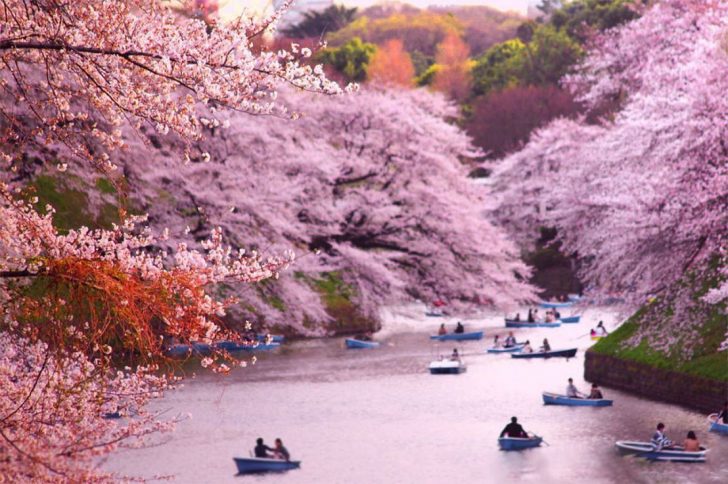
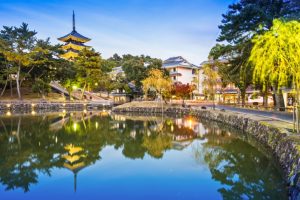
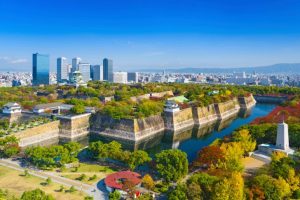
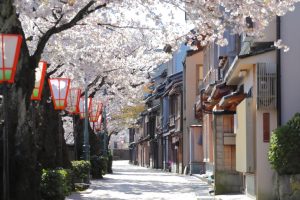
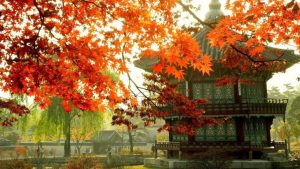
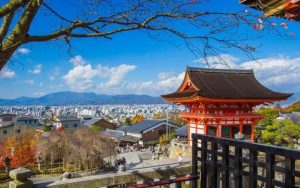
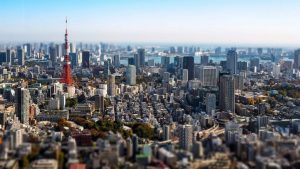





“NATURAL DISASTERS RISK : LOW” ???
Hello, it’s mistake…
I’m Japanese and I agree with your idea. There might be a large earthquake.
Wrong rating level about NATURAL DISASTERS RISK
And the other mistake is:
It places South Korea as High Risk in terms of NATURAL DISASTERS RISK (https://www.travelsafe-abroad.com/south-korea/):
“When it comes to natural disasters, South Korea has had a history of earthquakes, but most of them caused little damage. Another issue when it comes to natural disasters is typhoons that may occur in August and September, as well as tsunamis.”
South Korea is less prone to typhoons, letting alone tsunami.
If it gives low rating of natural disasters risk to Japan, NO RISK should be given to South Korea.
Also, Japan Weather Averages (Temperatures) is terribly wrong! Winter is way colder even though Hong Kong is about 16C – 20C in winter!
Great but...
Natural disasters need to be medium-high because Japan is in the Ring of fire and that means Japan can get struck by earthquakes. Typhoons can also hit the area too.
I think so too.
Not as safe as you think
Overall, I feel equally as safe living in Japan as I do in my rural hometown in the US. That being said, some crime is on the rise here and you should be careful when you’re walking around some major cities late at night. Japan happens to be the only place where I’ve been the victim of a completely unprovoked armed assault (with a knife). The mental health situation in Japan is a bit of a black mark on the “perfect” image that lots of westerners often attempt to attribute to it, and it seems like more and more disturbed people are committing horrible acts of mass murder or assaulting people at random.
This isn’t meant to scare anyone; enjoy this unique and beautiful country if you’re visiting. Just please don’t assume you’re going to some perfectly harmonious place where crime doesn’t exist; there is still crime, and you should never put yourself in a situation where you could be vulnerable. Drink responsibly (or don’t drink alone if you’re really going all-out), stay smart, and take special care in the major urban areas.
Get to know the Real Japan in 2021.
Japan is not a bad destination but like all Nations be wary of Scammers and Pickpockets.
Knife attacks are somewhat Common especially the Big Cities of the Nation.
Average temperatures are unrealistic also natural disaster are not low
Safe 🙂
I have been scammed in Tokyo, and had my wallet stolen in Harajuku. I still feel extremely safe in Japan. I moved to Kyushu a few years ago and even built a home here. While you should obviously practice common sense, It’s a wonderful place to visit. I’ve seen people leave their cars running while they go into a convenience store, leave purses/laptops unattended while the owner orders or uses the restroom. People will go out of their way to help you, though I feel like this is more common in the countryside than it is in the Larger tourist areas. I highly recommend visiting the countryside, lots of hidden gems to be found. 🙂
A more accurate view of the weather
The temperate guide is totally wrong. 30C in January? Maybe in Okinawa.
The summer is hot in most places – that part is right. It hits over 30C daily, and almost never falls below 20C, even at night. The humidity is also extreme! You will sweat… imagine New Orleans or Cairns in summer.
Winter, on the other hand, is cold. Frosty, snowy cold often. Depending on where you are, the winter could range from south of England/London style, with little snow but frequent nights that get below zero, and days that rarely see low double digits, right down to more North American style winters with deep, long lasting snow, and nights that could get into the double digits below zero.
The temperature is not even that high in Okinawa (16C-20C) in winter!
Very Safe
Japan Is Very Safe
Corrections
Many wrongs, it should be
NATURAL DISASTERS RISK: HIGH, earthquakes, tsunamis, typhoons, volcanic eruptions, you name it. EVERY year. It is possibly the country with the Highest Risk for Natural disasters.
MUGGING RISK : LOW, what, it almost never happens, really low risk.
TERRORISM RISK : LOW, it has happened just once in almost 80 years or more.
NATURAL DISASTERS RISK: LOW!? THERE IS SO MANY TSUNAMIS AND THYPHOONS IN JAPAN
Really beautiful country!! But I think it isn’t THAT safe, I had men stalk me, so I suggest to not go into dark street corners- and when someone IS following you, don’t go to your home/hotel, they’ll come back tomorrow or will try to unlock the door.. Try to go to public and crowded places! They might lose you and give up.. Overall I think it’s a 56 for me.. 95% of the women who got stalked don’t speak out.. and the police dont even do anything abt stalkers either.. but I love my country though! =^^=
sexual harassment
It is true what Miya says sexual harassment is a big risk and most do not speak out. Because people are super sexually repressed in Japan, many can act out in frustration. Men will steal your underwear off the clothesline, stalk you or try to look up your skirt on an escalator – it is also not uncommon to get touched on the metro or have someone openly masturbating…I even had a young man brave enough to try reaching up my skirt as I was ascending a stairway, midday in public with a group of friends!…in all these situations, most Japanese people will be uncomfortable however, they tend to look the other way and pretend it is not happening. Look them in the eye, yell, scream, laugh, shout, cry, in any language – take a photo or video with your phone – do anything other than pretend it is not happening and they are generally so shocked they just run away. Post the photo or video on social media to shame them and report to the police. They have to understand that what they are doing is not okay and not acceptable.
NATURAL DISASTERS RISK : LOW???? You must make your website and research data reliable instead of nonsense.
Japan is the most dangerous country as in natural disasters, rated one star our of five.
If you do that again against common sense, I will never use you and spread the words.
you do know you put 4 stars don’t you?
One of the safest places you can visit, but it is still on Earth with normal humans. Violent crimes against random people are relatively rare, in particular against tourists but of course like anywhere with humans they can and do happen.
Pickpocketing is one of the more common crimes overall, but keep your wits about you among crowds of suspicious people in high traffic tourist areas. Transportation is efficient but crowded in major cities and can be a place for gropers or pickpockets. Once again its a rare occurrence against tourists as they are more likely to make a scene than locals. Another is taking advantage of others especially in shady areas. Spiked drinks are a frequent concern in a number of places and like anywhere else, never take a drink directly from a stranger, staff only. Similarly the various Red Light districts have become popular tourist destinations for a variety of reasons. These places are indeed quite dangerous if you are not careful and almost all of the more “colorful” services are not afforded to foreign people. These areas also tend to feature heavy drinking and bars looking to take advantage of that, especially tourists who do not know better.
Weather and natural disasters can vary greatly. Summer to mid fall can have a number of typhoon hit or come in close to the country with a wide range of strength so keep an eye on the alerts. They are detected weeks in advance. Earthquakes are frequent but once again can vary in strength and be felt anywhere. Heavy rains can be a factor in late Spring and Summer which lead to localized flooding.
It’s fairly safe for women but once again keep your wits about you. People being followed or otherwise unwanted advances can happen. Police, transportation staff, and many store staff are trained to handle these situations and should be approached if you are feeling threatened. Similarly at night convivence stores operate with bright lights as a safe place to enter and call for help if needed.
In short, its an extremely safe country in terms of other human interaction, particularly as a tourist due to the language barrier and various perceptions of foreigners being a deterrent against interactions (in this case crimes). Keep your wits about you and follow the usual “keep safe” ideas and strategies as any other place and you will be fine. Natural disasters do happen and frequently but it is a well prepared country in most cases.
RELATIVELY A SAFE PLACE
I been to Japan many a times and I can safely say that the article is fairly accurate in reporting level of safety, crimes rates in Japan etc…. EXCEPT:
1. Weather – the weather reported is pretty linear…lol. it has 4 seasons….hello??
2. Natural Disasters – Goshh…. where oh where did you obtained this data/info from?
PS : was the editor high on Chivas?……which explains
Japan is not that warm. (Excluding some areas)
Sorry.I live in Japan. Japan is not that warm. (Excluding some areas)Winter is cold.(3℃)
Summer is very hot. Japan has a long vertical climate difference, so there is a big difference in climate.
Corrections:
Natural Disasters risk: HIGH
Womens’ risk: Medium
World travler
Never Nevvvvveeeeerrrrrr!!!!!!!!
Never go! If anyone asks, I’ll ask you to go to South Korea!
Can my family have a good time?
I’d love to visit Japan, it has been a life goal of mine for the longest time!
But recently, my family have been reconsidering our plans including our younger children.
Is Japan safe enough for us parents to not to stress too much for the safety of our kids?
Especially with the idea of creepy people and stalkers about, I’m a bit weary if the trip is worth the potential threat.
We will be stressing regardless but I thought I’d ask for some reassurance.